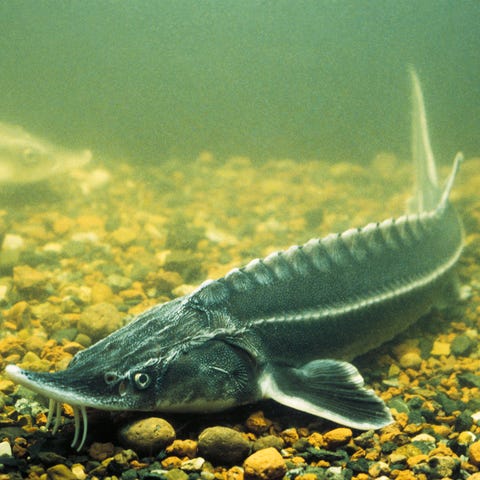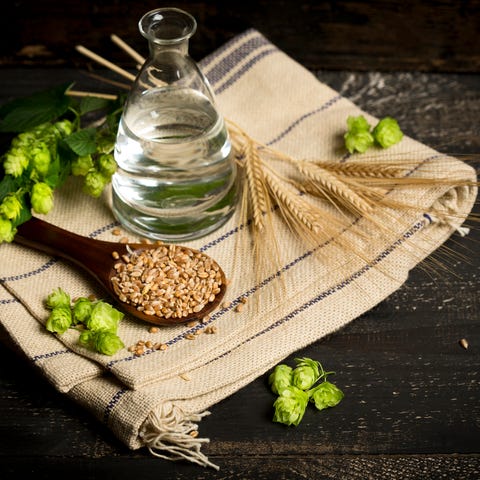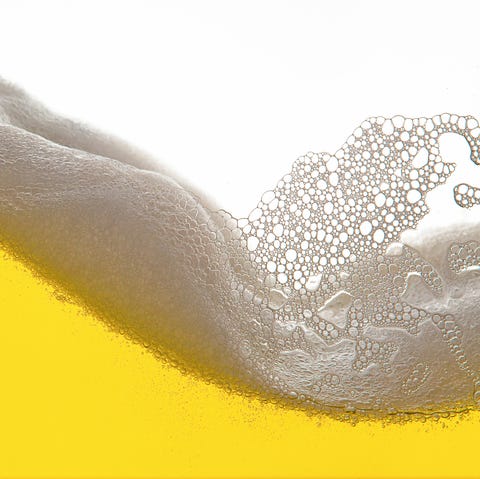How to Find Out if Your Beer Is Actually Vegan
Hey, remember veganism?
At least that’s what people called not consuming any animal products before the whole plant-based trend rolled around.
It seems as tech-based meats grow in popularity and marketers slap the words “plant-based” on just about everything, the word “vegan” appears to be falling out of vogue.
This doesn’t mean that veganism isn’t still a thing. And although the plant-based trend might make it a little easier for vegans to remain vegan, there’s one area that still poses a challenge: beer.

Subscribe to Men’s Health
SHOP NOW
Just to be clear, “veganism” means absolutely nothing in the diet can come from animal products (fish, chicken, or steak) and byproducts of animal origin (milk, eggs, honey).
Beer is made with hops, grains, and water. So beer is vegan, right?
No and yes.
Here’s why some beers aren’t vegan.

4×6
Beers can contain other ingredients beyond the basics that come from animal products. These are often obvious: honey beer, milk stout (they contain lactose), oyster stouts (yes, they’re brewed with actual oysters).
But they can also contain fish guts.
You read that correctly: fish guts.
Craft beer brewing isn’t a modern invention. In fact, modern brewers often turn to old-school techniques and traditions to make beer. One of these techniques involves using something called “finings.”
Finings are a form of gelatin that come from boiling the skin, cartilage, and bones of animals. “Isinglass,” a type of fining (stick with me here), comes from the swim bladders of sturgeon or tropical fish.

Pro-syanov
Now, how this use was discovered is beyond me, but, regardless, finings help remove yeast and the resultant protein haze from beer.
Why is that important? Hang on to your beer-nerd hats.
While hazy IPAs are popular right now, there’s a reason why hazy porters and stouts are not, and it has to do with bottle conditioning.
Brewers deploy bottle conditioning to carbonate beer and help the live yeast stay, well, living. Some brewers believe that allowing the yeast to continue to work after bottling means it improves with age (more like wine—and my wife).
There’s a challenge with following those brewing techniques, however. The yeast can eventually die and create unpleasant flavors.
So yeast is a double-edged sword. While it may help improve the flavors of a beer, it may also not. Finings help remove that X-factor, even if that means breweries can’t sell that beer as vegan.
Here’s why some beers are vegan.

Westend61
Due to current advances in beer brewing, namely centrifuging and filtration technologies, brewers use finings less often then they used to. That said, finings are still a thing used occasionally by certain brewers.
To be honest, today the use of finings is fairly limited to cask ales in the UK and some craft brewers who poo-poo the use of modern filtration for the sake of what they’d say is a better flavored end product.
Because more craft breweries continue to emerge and more brewers (and savvy consumers) are interested in every aspect of products, from start to finish, many breweries have started labeling their beers.

Classen Rafael / EyeEm
And because transparency is the buzzword of the decade, most brewers will list everything and anything that goes into their beers so consumers can ultimately decide what they want to eat or drink.
Budweiser and Bud Light are vegan. As are Michelob, Michelob Ultra, and even Natural Light. There’s a flight of craft brewers offering a range of vegan beers, which you can all find here.
Guinness, which made headlines a few years ago for using finings, is also now vegan.
Like with anything you consume, read the label, whether you’re vegan or plant-based or not.
Source: Read Full Article


